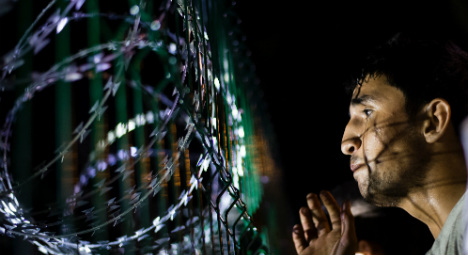Merkel, under heavy pressure at home to reduce arrivals, supports a plan under which transit country Turkey would seal its borders and then fly refugees to Europe where they would be settled under an EU quota system.
However, most countries in the European Union have shown little enthusiasm for the idea, and the so-called Visegrad Four – Poland, the Czech Republic, Slovakia and Hungary – have openly defied Merkel.
They have pledged to help Macedonia and Bulgaria close their borders with Greece, which would leave Greece with rapidly rising numbers of refugees while effectively excluding it from Europe's passport-free Schengen zone.
Merkel hit back Tuesday, saying: “Do we really want to give up already and close the Greek-Macedonian-Bulgarian border, with all the consequences this would have for Greece and the European Union as a whole and therefore the Schengen area?”
At a two-day EU summit in Brussels starting Thursday, she said, “I will focus all my strength … on making the European-Turkish approach the path that will be taken”.
DON'T MISS: EU 'will still accept Syrians after Turkey deal': Merkel
The issue would be one of the key measures of the “success or failure” of the summit, added Merkel at a joint press conference with visiting Israeli Prime Minister Benjamin Netanyahu.
Merkel has seen domestic support drop over her liberal migration policy since more than 1.1 million asylum seekers came to Germany last year.
She has also been increasingly isolated on the EU stage, where few members are willing to take more refugees and even a plan from last year to resettle 160,000 has so far seen only several hundred asylum seekers moved to other EU countries.
The chancellor conceded she expected no progress on the quota plan at the summit.
“We would become a laughing stock if we agreed new quotas, considering the current situation where not even 1,000 of the agreed 160,000 have been distributed among European countries,” she said.




 Please whitelist us to continue reading.
Please whitelist us to continue reading.